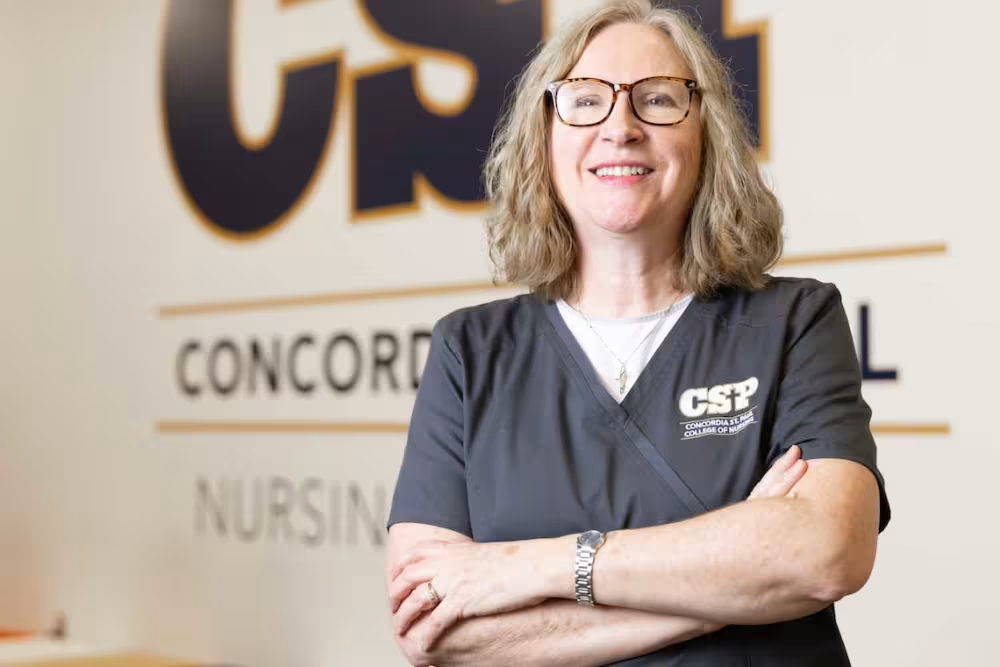How Long Does It Take to Become a Nurse? The Fastest Path to a BSN
Each blog post is dated and contains accurate information as of that date. Certain information may have changed since the blog post publication date. If you would like to confirm the current accuracy of blog information, please visit our ABSN overview page or contact admissions at 866-892-1562.
How long does it take to become a nurse? It depends on the pathway you follow. If you enroll in a traditional Bachelor of Science in Nursing program, you can expect to graduate after four years. An Accelerated BSN can allow you to graduate in as few as 16 months.

How long does it take to become a nurse? The answer depends on your educational background. Obtaining a nursing degree can range from four years to earn a traditional degree to less than two years in an accelerated program. Additionally, each nursing student’s circumstances are unique and may alter their individual timeline.
One of the fastest ways to become a nurse is with the help of Concordia University, St. Paul’s Accelerated Bachelor of Science in Nursing (ABSN) program. The ABSN program, with a curriculum of online-based coursework, on-campus nursing skills labs, and clinical learning experiences, enables students to complete a nursing degree in as few as 16 months.
While you’re planning your transition into nursing, consider each of the possible pathways to determine which is right for you. Also look at what you can expect from the time periods before starting nursing school and after graduating.

Why switch from teaching to nursing? Discover 6 top reasons.
How Long Does It Take to Become an RN? Understanding the Timeline
If you want to know how to become an RN fast, consider what your starting point is. Your current qualifications and your specific nursing career goals will determine which path you should take.
How Long It Takes With a Traditional BSN
If your highest academic qualification is a high school diploma, you should consider a traditional Bachelor of Science in Nursing (BSN) program. This is an undergraduate degree that includes general education requirements, as well as the nursing curriculum. It typically takes four years of full-time study to earn a BSN with a traditional undergraduate pathway.
How Long It Takes With an Associate Degree
Another option is to earn an Associate Degree in Nursing (ADN). This option is available to future nurses without prior college education, as well as for those who do have a college degree in a non-nursing field. It generally takes two years of full-time study to earn an ADN, though programs can vary.

Note that most employers prefer to hire BSN-prepared nurses over ADN-prepared nurses, and many may not hire an ADN-prepared candidate at all. An ADN can limit your employment prospects or opportunities for career advancement.
How Long It Takes With an ABSN
If you have a non-nursing bachelor’s degree or have completed at least 54 college credits, you may be eligible for the ABSN program at CSP. It’s possible to earn a quality BSN in as few as 16 months through this option. You’ll complete the same quality of nursing education as you would in a traditional BSN on a faster timeline.
The Timeline Before and After Nursing School
Note that these general timelines do not include the time spent fulfilling requirements before and after graduation. How long does it take to get a BSN overall? It can vary depending on how long it takes you to meet admission requirements, apply to the program, and begin on your chosen start date. These timelines also don’t include the time necessary to complete the NCLEX-RN licensure exam after graduating.

What to Expect From Your Time Before Starting School
Before starting nursing school, you’ll need to complete the ATI Test of Essential Academic Skills exam and take any needed prerequisite courses. Why are prerequisites important? Before you can take a nursing course like pharmacology, you need to have a basic understanding of chemistry, just like you need to know the basics of anatomy, physiology, and microbiology to understand how disease processes work.
In other words, you need the right academic foundation before starting school. The time required to complete prerequisites can vary by student. You may already have fulfilled some prerequisites, depending on your prior education.
Follow a step-by-step guide to learn how to apply to nursing school.

What to Expect From Your Time After Graduating
While obtaining a nursing degree is no doubt the biggest hurdle to jump over, that diploma doesn’t mean you can practice as a nurse. First, you’ll need to pass the NCLEX-RN. Used in all 50 states, this licensure exam determines a prospective RN’s readiness to practice safely.
Comparing Pathways: Traditional vs. Accelerated Nursing Programs
When making your decision as to which pathway is right for you, it can help to evaluate a breakdown of the major differences between a traditional vs. an accelerated nursing program. Compare information regarding the length, admission requirements, and curriculum.
| ABSN Program | Traditional BSN | |
|---|---|---|
| Length | As few as 16 months | Typically four years |
| Admission Requirements | Vary, but includes prerequisites and is designed for those with some prior college education. Many accelerated programs require an entire non-nursing bachelor’s degree to enter an accelerated program. CSP only requires 54 credits. | Vary, but designed for high school graduates |
| Curriculum | Rigorous, focusing on nursing education | Rigorous, including general education and nursing |
| Degree Outcome | BSN | BSN |
Ready to Fast-Track Your Nursing Career at Concordia University, St. Paul?
At Concordia University, St. Paul, you can access an accelerated pathway toward entering the nursing workforce. Our comprehensive curriculum is designed to prepare nurse candidates to serve the needs of culturally diverse populations with integrity.
Contact an admissions counselor today to learn how you can get started.
